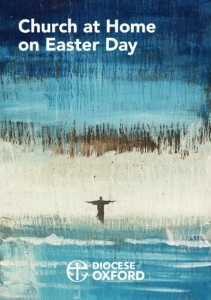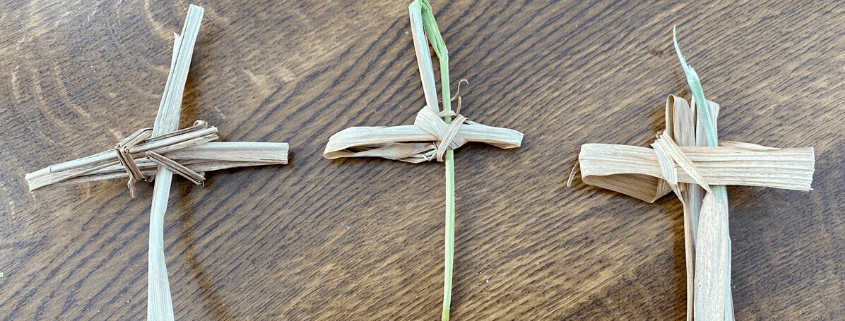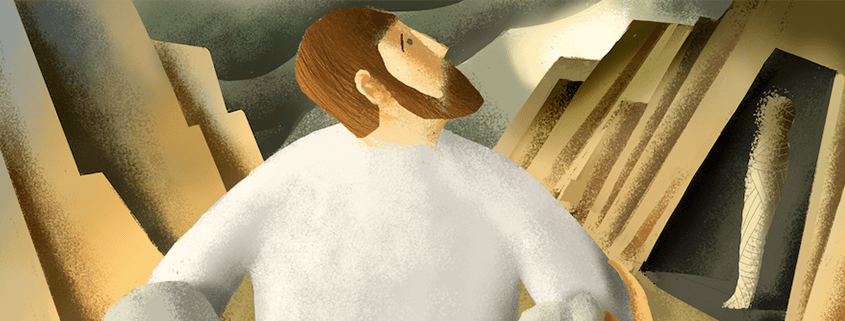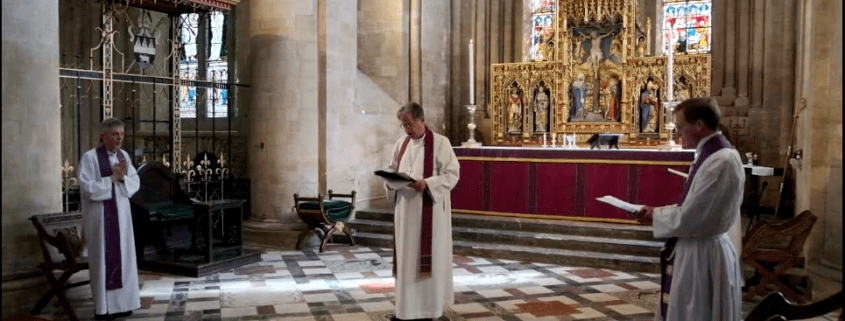Archdeacon Jonathan gave the following sermon during the Church at Home online service on Sunday 10 May.
75 years ago this weekend the western world was celebrating Victory in Europe. This was news that signified relief, release and recovery: relief at no more casualty notifications from the front-line; a release of exuberant emotion at the cessation of hostilities, and the hope of freedoms recovered. Bonfires, dancing and parties erupted spontaneously across the country. The war was won; we could dream again! Yet just below the exhilaration lay something more bitter-sweet, with many exhausted by the strain of six long years of war memories of loved ones lost in the conflict and rejoicing put on hold for those still caught up with the war in the Far-East. Celebration quickly turned to reflection, for we knew deep down that life was changed – so many questions: how would society be rebuilt and what would it look like for me and my family?
Such a jumble of emotions and questions are common in times of heightened awareness, at pivotal moments in our lives. I’ve observed this myself working alongside servicemen and women on operational duties, and in their loved ones back at home, when what is secure and familiar is no longer certain. You may sense this yourselves in the complex new world created by Covid-19. Jesus’ disciples are no different to us in this respect. In our Gospel story, the level of tension is high. The disciples are trying to get their heads and hearts around all that Jesus is saying and doing. Talk of Jesus being killed yet glorified, of betrayals and denials, and then experiencing this great servant leader stooping to wash their feet and calling them to love others as he has loved them. It all seems a bit overwhelming – to put it mildly.
So what a beautiful gift it is to know that Jesus understands us – completely – and is able to calm our hearts and inspire our minds: “Do not let your hearts be troubled. Trust in God. Trust also in me. There are many rooms in my Father’s house…I go and prepare a place for you.” Perhaps some of us are like the disciples, needing to hear that comfort and reassurance of Jesus in our own circumstances? Jesus, the Son of God and the Son of Man, one with the Father, is uniquely able to bridge Heaven and Earth, Eternity and the Present Day: “I am the Way, the Truth and the Life”, he says, “No-one comes to the Father except through me.” So, whatever our uncertainties about the way ahead, whatever the lies that we may have received or perhaps given, whatever the destructive patterns within or around us, Jesus offers a radical and lasting alternative in himself!
And with that relationship come two gifts come from this relationship: firstly, the promise of eternity that cannot be shaken by any unforeseen circumstances – this brings a whole new dimension to ‘We’ll Meet Again’ – and secondly, an invitation to work with Jesus in uniting heaven with earth today. “Anyone who has faith in me,” he says, “will do what I have been doing…so that the Son may bring glory to the Father.”
It follows that we believe both in life after death – but also in life before death, as the strapline of Christian Aid puts it. Christian Aid was born into the social and economic vacuum that followed the Second World War, with western finances in disarray and a wave of refugees sweeping across Europe. In response to Jesus’ great commands, both to love God and to love our neighbour as ourselves, over 75 years its work has expanded to bring humanitarian relief and development across the globe. It has educated succeeding generations on the causes of poverty and advocated for countless victims of injustice, those without a voice. So the need to support this ministry has arguably never been greater, for those poorest are always most vulnerable to dwindling financial resources and changing climate.
It takes courage, of course, to represent Jesus in speaking and acting for truth. In our first reading it led to martyrdom for Stephen, as he encountered fiercely defended interests, even religious ones. But in standing up for those on the margins we fulfil the call of Jesus, a Kingdom call, living with the promise of life after death and sharing his invitation to life before death. It is humbling to see this lived out across the Diocese of Oxford, as online Alpha courses and school assemblies, for instance, go hand in hand with compassionate Christian service in neighbourhood food banks and key working environments.
75 years from the Second World War we again live in pretty strange times. Contemplating the gradual lifting of lockdown, whole societies, even the Church, are facing uncertainties about the future, concerning health and housing, employment and family life, patterns of church life. As disciples of Jesus, sharing his saving love and establishing his Kingdom on earth, let us take heart that he remains ‘the Way, the Truth and the Life’.
The Venerable Jonathan Chaffey CB
10 May 2020
You can watch the full service here and donate to Christian Aid Week online here.


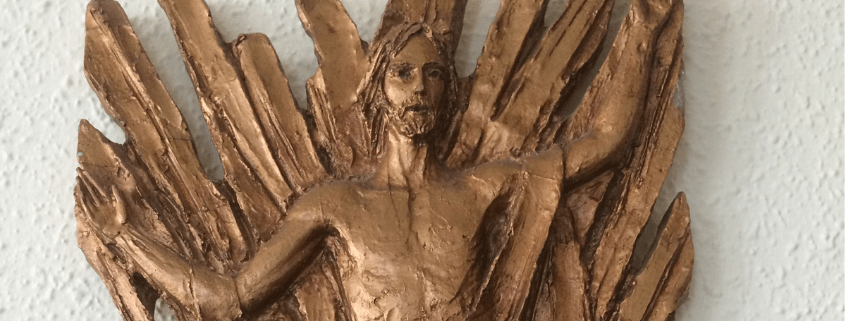
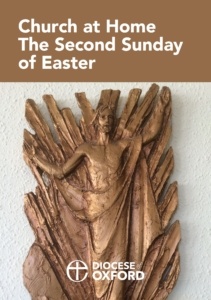 Watch the
Watch the 
